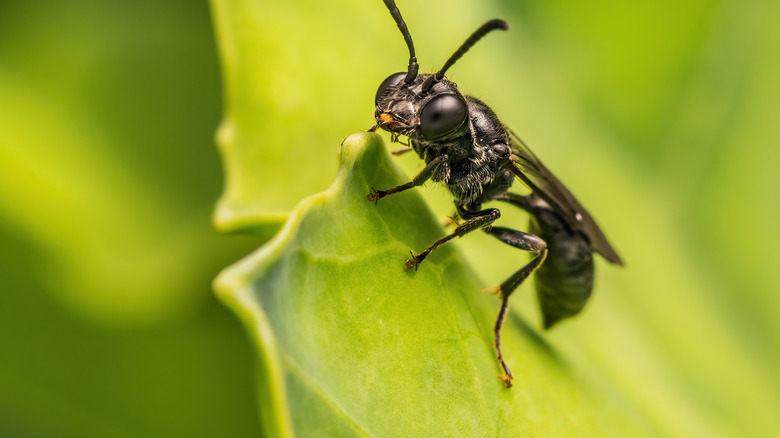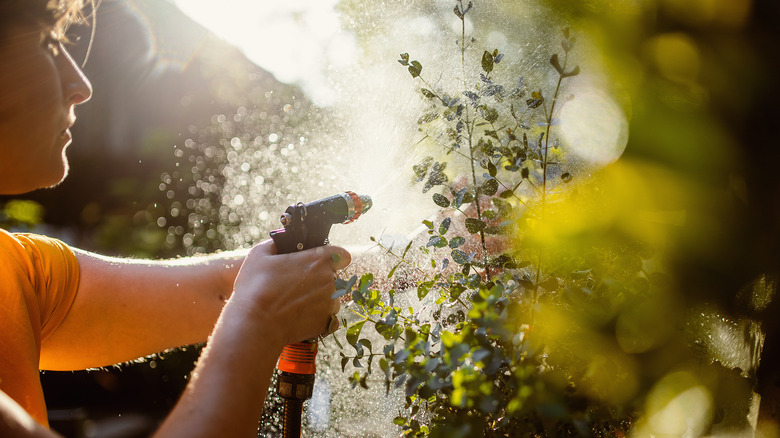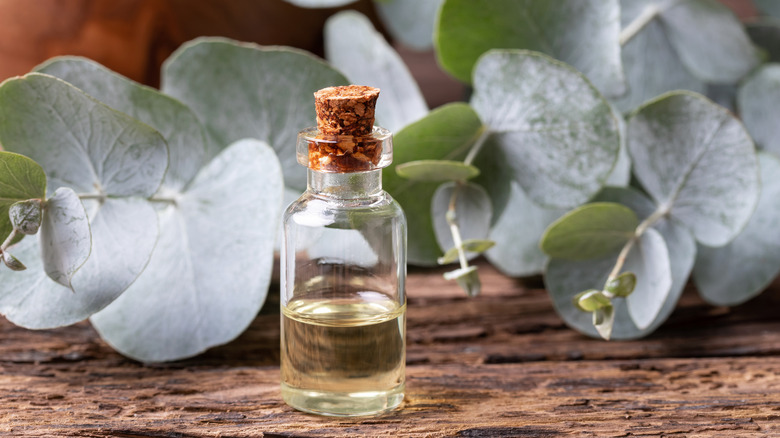The Low-Maintenance Tree You Should Grow To Naturally Repel Wasps
Summer's approaching, and we all know what that means: beautiful sunsets, nights filled with campfire songs, and plenty of insects to join the party. Of course, we're sure you'll have your citronella candles ready to keep mosquitoes away and plenty of eyes on bee hives near your home. But what about wasps? Beyond being known for their aggression, wasps are also prone to diving into human plates of food, ultimately ending a festivity as soon as it begins. The answer to getting rid of wasps circling your next home event is, surprisingly, a eucalyptus tree.
Most of their diet consists of sugar-heavy drinks that are left out or protein-rich foods that may decorate your BBQ, so because eucalyptus is much more potent and minty, they'll go running in the opposite direction. If you're sick of running in circles in fear of a wasp stings, (trust us, no shame!) you've come to the right place. Getting your remedy ready before summer approaches is much easier than you think.
A guide to growing your eucalyptus tree
Eucalyptus is known for being low-effort because it can be grown in containers as a shrub or tree. The ornamental leaves are silver-green and have bleached-white bark. Adding this element to your garden repels wasps with ease because the smell is entirely too strong for their senses and completely deters them from coming near your home. Their receptors can become blocked by the menthol smell and lead to instant irritation.
Start by buying a couple of eucalyptus trees if you want to take it easy. Be sure the tree gets about six hours of bright light on average with a pot with excellent drainage. They're great indoors and outdoors because humidity or temperatures don't bother them much. Know that they can grow fairly quickly under the right conditions. For added measure, grow your eucalyptus tree where you spend the most time around your yard.
If you'd like the challenge of growing your own tree, start by making sure your site has great drainage and gets lots of sun. If you live in a residential area, you might want to think twice about growing eucalyptus since these trees can become as tall as 200 feet. Once you're cleared, find the variety that best suits your lifestyle and taste. Protecting a eucalyptus tree during the winter can be difficult if it's planted in your ground, as it's pretty sensitive to cold winds.
Other ways to get rid of wasps with eucalyptus
If a eucalyptus tree isn't in the cards, or you don't trust your green thumb enough to get the job done, a few other options can keep your wasp issue at bay. The best essential oil scent to add to your home or around your yard is eucalyptus, as it's nearly just as potent as the actual plant. Grab a spray bottle, and add 10 to 15 drops of your essential oil, then shake. Spray your essential oil solution on places where wasps tend to build nests, like rooftops, sheds, and ledges. And for anyone terrified of attracting wasps outdoors, rubbing a bit of eucalyptus oil on your wrists or pulse points should help keep them away.
Be wary of the side effects of using eucalyptus oil around your home, though. Inhaling too much eucalyptus oil can sometimes result in fever or asthma attacks, especially if you're allergic. It absorbs pretty rapidly, so it's best to spray or use it in small doses. Build the amount you use in your home and on your body slowly, to build a tolerance if this option is the best one for you. Eucalyptus oil should never be congested, so keep your oil away from children and pets. Though it has a great smell, it's important to know that those with sensitive skin should be wary of its power.


